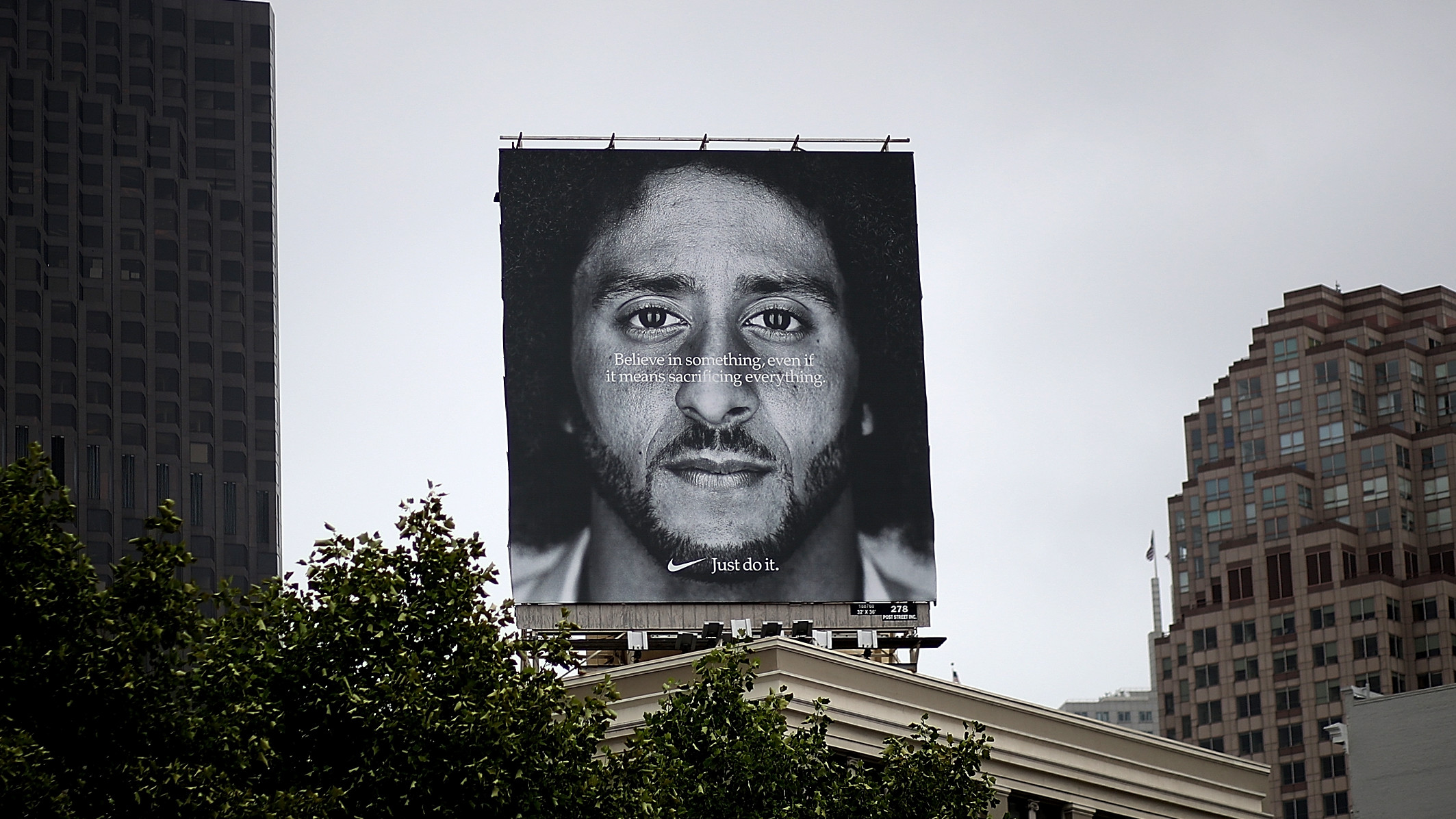Within the past week or so, Nike has received a lot of attention and backlash for their decision to endorse Colin Kaepernick in a recent ad campaign. To an uninformed observer, this could seem like just another athletic clothing brand sponsoring a professional football player. To any other American, though, this was a big corporate risk that created intense controversy.
Many right-winged Americans, who have been strongly opposed to Kaepernick’s choice to kneel during the national anthem at football games, reacted angrily to Nike’s newest endorsement. Videos of people burning Nike shoes and equipment went viral online, and many vowed never to purchase the brand again in the future.
Meanwhile, those on the opposite side of the political spectrum were elated to see Nike’s support for the movement, and celebrities like Serena Williams and Common vocalized their enthusiasm for the campaign. But the Right also had celebrity representation on the issue, with reactions such as James Woods’ tweet stating “Nike commits #BrandSuicide.”
In deciding to take a very public stance on an extremely divisive American issue, Nike took a serious risk. Believing themselves to be on the right side of history, they risked losing customers, sponsorships and stock value.
Luckily, this immense risk paid off: Since releasing the Kaepernick ad, Nike’s sales have risen by 31 percent. How, amid all these boycotts and lost customers, did Nike manage to come out on top? Well, for one thing, they must have had an inkling that this would work.
Nike is definitely not the first brand to take a solid stance on a controversial political topic. Patagonia, for example, made a stark political statement against the Trump administration in late 2017. They blacked out their entire website’s home page, except for the text in glaring white font which read “The President Stole Your Land” and some smaller subtext for links, referencing the administration’s choice to reduce the size of American protected land.
Ben & Jerry’s has also been heavily involved in social and political issues. They have donated to support many causes, including racial justice, climate change, refugee crises and LGBTQ equality. They might only be an ice cream company, but they have a whole section of their website entitled “Issues We Care About” dedicated to the way they give back and use their platform to influence social change.
Although most companies don’t involve themselves as deeply in politics as Ben & Jerry’s does, many have in some way or another declared their place on the political spectrum, at least for certain issues. Even Tiffany & Co., the company allegedly credited for naming Trump’s second daughter, publicly denounced the Trump Administration for pulling out of the Paris Climate Agreement.
The company shared their views in an Instagram post. “Dear President Trump,” it said, “we’re still in for bold climate action. Please keep the U.S. in the Paris Climate Agreement. The disaster of climate change is too real, and the threat to our planet and to our children is too great.” They spread the same message on their advertisement spot in The New York Times, sacrificing their usual photos of sparkling jewelry.
https://www.instagram.com/p/BT3u0i5gtpJ/?utm_source=ig_embed
The steps that these companies take happen for a reason — a changing political climate brings with it a change in consumerism. Millennials, especially, aren’t only interested in the products they buy, but also in spending their money responsibly. Many feel hopeless in a world with so much tragedy and injustice, and find comfort in supporting companies that put their moral tensions at ease.
That’s why trends such as veganism and ethical shopping have exploded in recent years. Consumers are holding companies responsible for what they see as unjust acts in very public ways, and companies have to keep up.
Chick-fil-A, for example, is now publicly known for being tied to anti-LGBTQ sponsorships. As a result, LGBTQ advocates boycott and even work to remove certain stores. With this level of corporate responsibility at stake, other brands feel obligated to take a side — ideally, the “correct” one — on morally controversial issues.
Nordstrom, for example, recently stopped selling Ivanka Trump’s brand in stores. Many anti-Trump consumers saw this as a victory, and more of a reason to spend their money at the department store. In reality, Nordstrom had no choice but to take those products off their shelves — passionate protesters would have cost them a lot of business if they had kept the name of such a controversial and hated president on their clothing racks.
Most of the time, companies like Nike aren’t taking a side on a political issue because of their own moral standards. For reference, one of Nike’s co-founders donated $500,000 to a GOP candidate last year, completely contradicting their recent ad campaign that offended most of the Republican party. Marketing teams at brands like Nike know the tricky ways they need to go about bringing in profit.
It was smart of Nike — just like it was of other brands — to create a controversial advertising campaign. It brought plenty of attention to their name, gave supporting customers even more reason to buy their products, and managed to bring in a rise in sales despite the customers they (at least temporarily) lost.
Corporate brands know what the market is looking for in terms of advertisements and company standards, especially in such a tumultuous political climate. Regardless of whether these companies do it solely for the money, though, it’s never a bad thing to be using a large platform to spread important messages and take corporate responsibility.
I applaud Nike for taking a stand against police brutality and every other brand for taking their part in the resistance. I only encourage responsible consumers to be sure they do their research on companies before wholly buying into their morally righteous advertising campaigns.

















